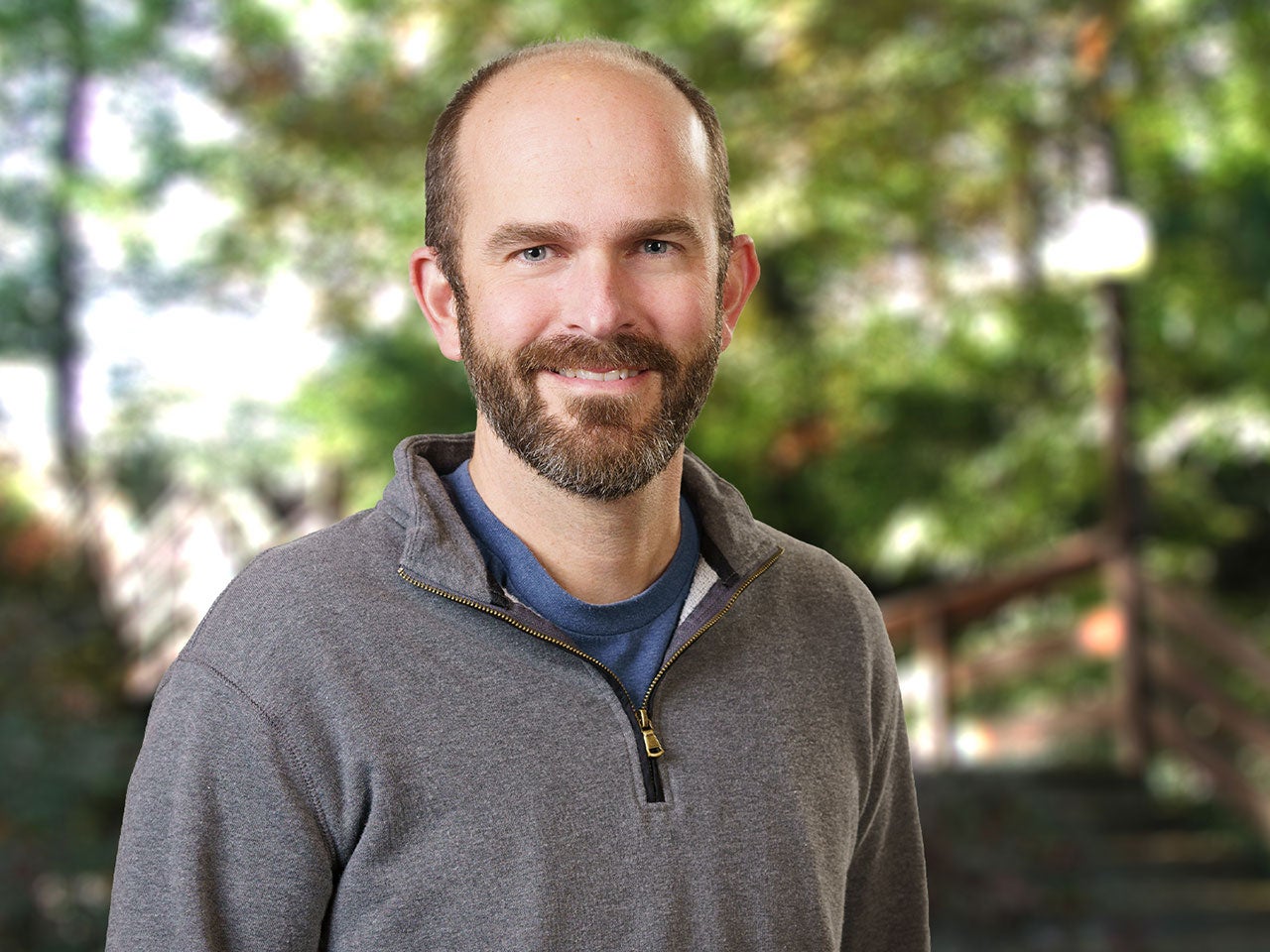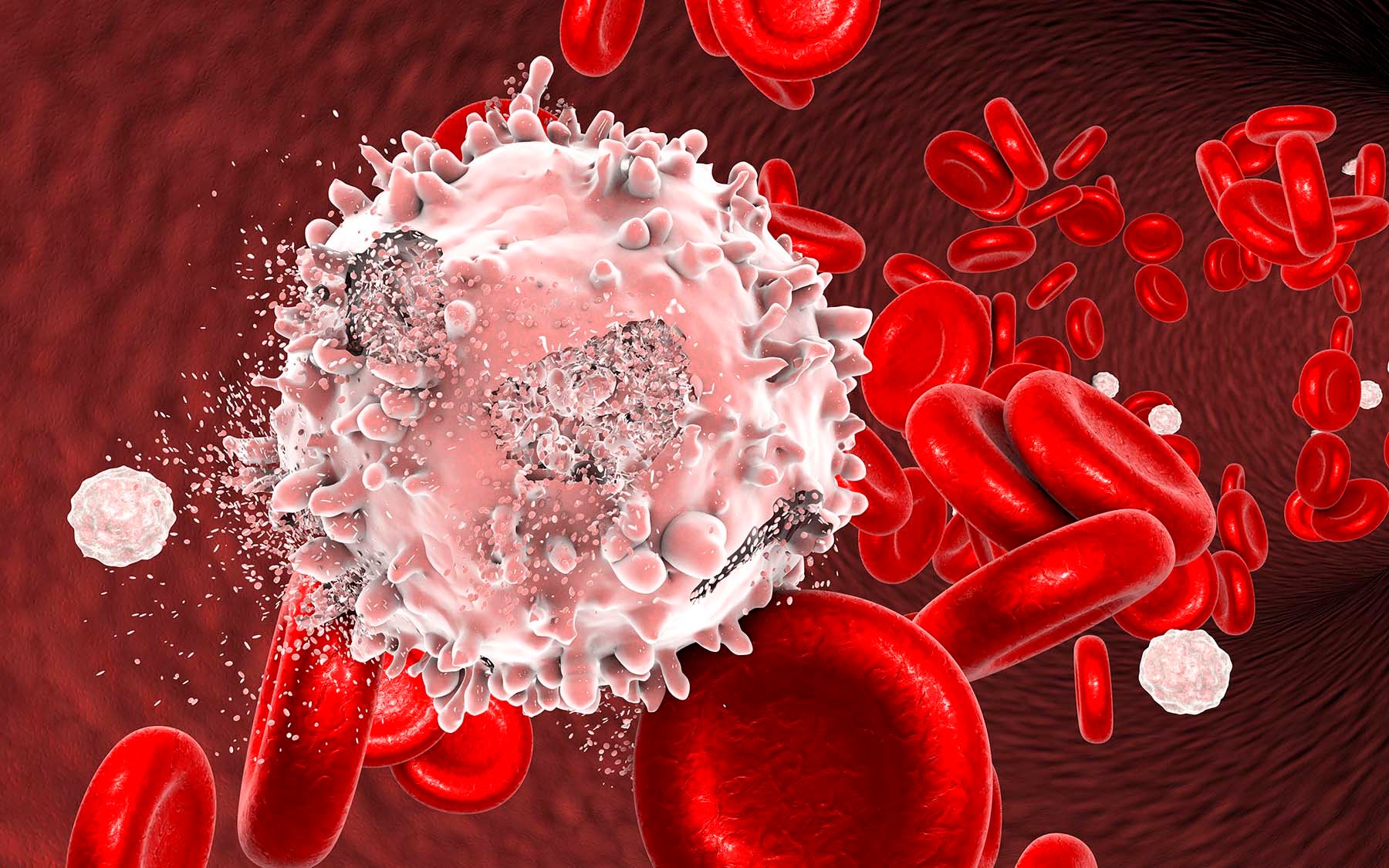Cold Spring Harbor, NY — Five percent of acute leukemia cases are diagnosed as mixed lineage leukemia (MLL). MLL is an aggressive blood cancer that predominantly occurs in infants and has been difficult to treat. Now, researchers at Cold Spring Harbor Laboratory (CSHL) have identified a very common protein as the single key to the cascade of events leading to MLL. Shutting down this protein may be a cure.
The cause of this leukemia is a gene named MLL which prompts the growth of new cells by producing a protein of the same name. In most situations, MLL is appropriately regulated by the body and thus, doesn’t cause problems. Unfortunately, in some cases, MLL incorrectly produces what is known as an MLL fusion protein.
Proteins act like keys. Designed for a discrete role, a protein binds to (or unlocks) specific sites within the cell to encourage one process or another. However, the MLL fusion protein is like a key that slides into too many locks, opening doors to aberrant cellular behavior.
Since MLL fusion proteins fit into so many locks, scientists have been hard-pressed to block all of the potential keyhole sites they may bind to in cells. Encouragingly, researchers have now discovered the single factor that could halt the production of this dangerous protein altogether!
As described in this month’s issue of Cancer Cell, postdoctoral fellow Bin Lu and colleagues in CSHL Associate Professor Chris Vakoc’s lab found that the aberrant MLL genes that produce the troublesome MLL fusion proteins are readily activated by ZFP64, a specialized protein.
ZFP64 is so common within the healthy human body that, until now, researchers haven’t considered it a factor in any type of leukemia. Further testing by the Vakoc team revealed that the creation of MLL fusion protein is entirely dependent on this single, inconspicuous protein.
“It’s an addiction,” Lu said. “We found that ZFP64 is necessary for this blood cancer to keep producing MLL fusion proteins,” and that creates more cancerous cells.
Lu explained that because an absence of ZFP64 so completely and specifically shuts down the production of MLL fusion proteins and the cascading growth of leukemia, it could be an ideal drug target.
“What we want to do next is find a way to realistically target it with drugs so it can be used to treat people,” he said. “If we can target ZFP64 so specifically, we can improve the treatment of this leukemia and maybe even cure it!”
Written by: Brian Stallard, Content Developer/Communicator | [email protected] | 516-367-8455
Funding
Forbeck Foundation; Pershing Square Sohn Cancer Research Alliance; Don Monti Memorial Foundation; National Institutes of Health; and Leukemia & Lymphoma Society Scholar Award
Citation
Lu, B. et al. “A transcription factor addiction in leukemia imposed by the MLL promoter sequence” was published in Cancer Cell on November 29, 2018.
Principal Investigator

Chris Vakoc
Professor
Alan and Edith Seligson Professor of Cancer Research
Cancer Center Deputy Director of Research
M.D., Ph.D., University of Pennsylvania, 2007
